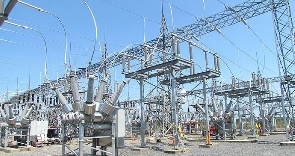 File photo of a power sub station
File photo of a power sub station
The Executive Director of the Institute for Energy Security (IES), Nana Amoasi VII, has raised concerns over the timing of the planned maintenance activities on the offshore West African Gas Pipeline (WAGP), warning that the exercise could expose Ghana to significant energy supply risks.
The mandatory maintenance operation, set to run from January 20 to February 16, 2025, involves cleaning, inspecting and replacing sub-sea valves along the pipeline. Initially slated for October 2024, the schedule was deferred at the request of the Ministry of Energy, according to a statement issued by Ghana Grid Company Limited (GRIDCo).
Nana Amoasi VII, in an interview with B&FT, while citing that the rescheduling raises critical questions, noted the need for adequate preparations for the supply of liquid fuel to power plants in the eastern corridor of the country.
This is given that the current arrangements will starve these plants of natural gas supply. But with the current liquid fuel shortage, he maintained that the country could be put through another period of ‘dumsor.’
The WAGP serves as a critical infrastructure for delivering natural gas from Nigeria to Ghana, Togo and Benin, fuelling power plants and supporting industrial activities. A disruption in its operations, even temporarily, could strain energy production capacity and potentially lead to power outages or increased reliance on costly alternative energy sources.
The IES Director stressed the importance of creating room for additional liquefied fuel supplies before proceeding with the maintenance work. “If not, considering the current challenges onshore, going ahead with the clean-up offshore will impact fuel supply.”
He also urged GRIDCo to engage the government to extend the execution of the exercise, ensuring preparedness and dispelling any notions that the timing is politically motivated.
Nana Amoasi VII further suggested that proper engagement with the government would enable GRIDCo to conduct a more comprehensive risk assessment of any further rescheduling.
He expressed scepticism about the planned duration of the maintenance, citing previous exercises by the company with exceeded timelines.
“If you defer a planned maintenance unnecessarily, then you are accepting that there can be a false shutdown of the system,” he said. Such delays, he warned, could lead to larger challenges, underscoring the importance of thorough and timely preparation.
GRIDCo’s report on the impending exercise stated that a total of 180 million standard cubic feet per day (mmscfd) of gas is consumed by the Sunon Asogli Plant, Cenpower, KTPP, TT1PP, AKSA, and Bridge Power plants in Tema.
During the pigging period, the WAGP lateral in Tema will be closed, leading to no gas supply for these thermal plants – except those capable of running on liquid fuel. This will require the shutdown of several gas-fired plants in Tema, reducing generation capacity.
Meanwhile, thermal plants in the Western Region—TAPCo, TICo, Karpower, and Twin City—consume about 230 mmscfd of natural gas. Additionally, Anwomaso Thermal Power Station in Kumasi and Genser Energy Power Stations together consume 75 mmscfd of gas. Non-power sectors in the West account for another 35 mmscfd.
With domestic gas production from ENI and Tullow providing a total of 345 mmscfd, the region’s supply will be sufficient to meet demand; even accommodating the 80–90 mmscfd delivered from Nigeria via the WAGP.
To facilitate the pigging exercise, gas production from ENI and Tullow will need to be adjusted to balance supply and consumption. GRIDCo also plans to dispatch hydro plants at high capacity during the maintenance period to offset the thermal generation shortfall in Tema. Akosombo GS is projected to run all six units continuously, while Bui GS will operate its units in staggered shifts to maximise output.
However, the report noted that a deficit in generation capacity is still anticipated, emphasising the urgent need to procure liquid fuel to sustain thermal plants in Tema. An estimated US$89.9million is required to purchase the necessary liquid fuel to meet demand during this period.